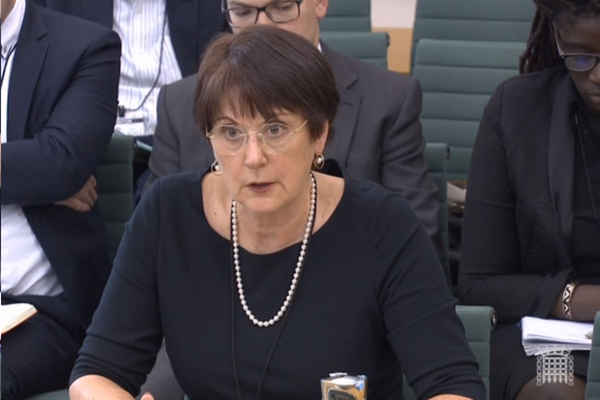You are viewing 1 of your 1 free articles
There is still time to get ahead of the game with new laws on the horizon
New legislation will transfer the focus of housing associations’ businesses towards the safety and quality of existing stock. This will create pressure, but it is better to prepare than complain, writes Peter Apps
After the terrible Grenfell Tower fire in 2017, there was a near-unanimous feeling in the sector that this must mark a turning point.
While progress since has been slower than some would have liked, some big changes are now coming to fruition.
These primarily take the form of two pieces of legislation: Homes (Fitness For Human Habitation) Act and the as yet unnamed bill which will pave the way for the recommendations of Dame Judith Hackitt’s review to become law.
As we reveal on our front page this week, that bill now has a timetable: consultation by the end of this month, a draft bill by winter and in force by 2021.
The impact of these new laws will be to change the focus of businesses in the social housing sector.
Over the past decade, the government has ordered social landlords to reduce costs on routine spending and invest heavily in development. Now the tide turns again.
Listen to a podcast on the Homes (Fitness for Human Habitation) Act:
Businesses will be required to become far more focused on the quality and, crucially, safety of their existing stock.
There will be legal penalties for failures – including costly pay outs to any residents who endure poor-quality housing.
Coupled with a likely bolstering of the regulators’ consumer powers and the reputational risk of programmes like last month’s Dispatches, the quality of existing homes will catapult to the top of social landlords’ priorities over the next decade.
This must and will mean different spending decisions.
Here’s the rub though: there isn’t going to be any grant to pay for it and neither are the demands to radically increase new development going to let up.
It would be easy to complain about this – ministers are asking for a cake which they can both have and eat – but energy would be better spent preparing.
Fitness for habitation applies to existing tenancies from March next year. The Hackitt Review follows a year later. The organisations that suffer will be the ones that sit on their hands in this time, those that thrive will be the ones who prepare.
There is still time to get ahead of the game.
Do the right thing
Inside Housing’s End Our Cladding Scandal campaign goes from strength to strength. The backers now include: the National Housing Federation, the Chartered Institute of Housing, Grenfell survivors, major trade unions and a White Walker from Game of Thrones (yes, really).
The wide support reflects the fact that it is plainly on the side of justice. Nobody thinks that leaseholders should be crippled financially in order to make their buildings safe. Billing the taxpayer is unfortunate but the urgency is such that it is the only way. Blame can be established later.
This week the campaign was mentioned in a parliamentary debate where ministers came under pressure for the “unacceptably slow” pace of removal work. Rushanara Ali, a Labour MP whose east London constituency contains many affected towers, pointed out that the government has found £420m to fix potholes – a sum which would likely be sufficient to end the plight of those trapped in dangerous buildings. It is time to do the right thing.
- Martin Hilditch, editor, Inside Housing
- Manchester Cladiators
- UK Cladding Action Group
- Natasha Elcock, chair, Grenfell United
- Sadiq Khan, mayor of London
- Kate Henderson, chief executive, National Housing Federation
- Terrie Alafat, chief executive, Chartered Institute of Housing
- Andy Burnham, Mayor of Greater Manchester
- Lord Gary Porter, chair of the Local Government Association
- Polly Neate, chief executive, Shelter
- Jane Duncan, chair of the expert advisory group on fire safety, RIBA
- Andy Dark, assistant general secretary of the Fire Brigades Union
- Christina McAnea, assistant general secretary, UNISON
- Sir Peter Bottomley, Conservative MP and chair of the All-Party Parliamentary Group on Leasehold and Commonhold Reform
- Jim Fitzpatrick, Labour MP, and member of All-Party Parliamentary Group on Leasehold and Commonhold Reform
- Mark Amesbury, shadow employment minister and Labour MP for Weaver Vale
- Emma Dent Coad, former Labour MP for North Kensington
- Lucy Powell, Labour MP for Manchester Central
- Rushanara Ali, Labour MP for Bethnal Green and Bow
- George Howarth, Labour MP for Knowsley
- Graham Stringer, Labour MP for Blackley and Broughton
- Rob Ellis, presenter, Capital FM
- John Biggs, mayor of Tower Hamlets
- Paul Dennett, mayor of Salford
- Suzanne Richards, councillor and executive member for housing and regeneration on behalf of all Manchester's Labour Councillors
- Sir Richard Leese, Labour councillor and leader Manchester City Council
- John Leech, Manchester Liberal Democrat leader on behalf of all Manchester’s Liberal Democrat councillors
- Darren Rodwell, executive member for housing at London Councils and leader of Barking and Dagenham Council
- George Clarke, TV Architect
- David Walker, bishop of Manchester
- Graham Tomlin, bishop of Kensington
- John Roberts, founder of AO.com
- Josh Beaumont, professional rugby player, Sale Sharks and resident of affected building
- Bill Beaumont, former England rugby captain
- Jeremy Dyson, co-founder of the League of Gentlemen
- Andy Moss, actor who has appeared on Channel 4’s Hollyoaks and resident
- Ross Mullan, actor who has appeared in Game of Thrones
- Get Cape Wear Cape Fly, musician
- Nour-eddine Aboudihaj, spokesperson for Justice4Grenfell
- Mike Leonard, chief executive, Building Alliance
- Kate Kendrick, founder, National Leasehold Campaign
- Martin Boyd, chair, Leasehold Knowledge Partnership
- Paula Higgins, chief executive, HomeOwners Alliance
- Mark Henderson, chief executive, Home Group
- Ben Clay, founding member of the Tenants Union
- Hilda Palmer, acting chair of the Hazards Campaign
- Susan Bright, professor of law, University of Oxford
- Gill Kernick, consultant and former Grenfell Resident
- Phil Murphy, fire safety expert and tower block resident
This list will be updated. Please email peter.apps@insidehousing.co.uk if you want to support the campaign
End Our Cladding Scandal: campaign aims
- Government provides a fund to cover the cost of cladding removal and remedial works on private blocks
- A firm timescale is set out of no more than two years for the work to be carried out
- Residents are reimbursed for the interim fire safety costs incurred, and funding is to be provided for necessary internal fire safety measures identified by a competent fire risk assessor
End Our Cladding Scandal: full coverage
- Government-funded advice agency tells leaseholders they are 'likely' to be liable for cladding costs: LEASE, the government's official advisory service for leaseholders, has been advising residents they are likely to be liable to pay bills for cladding removal
- Residents evacuated after fire at block with Grenfell-style cladding: Residents of Vallea Court in Manchester are forced to flee after a fire breaks out in a lift shaft
- Leaseholders in London block pay nearly £3.5m for cladding removal: Despite promises from ministers to protect leaseholders, residents of the M&M Buildings near Paddington have been told to pay out
- Minister's will have blood on their hands if another death occurs, says MP: A round-up of the parliamentary debate on providing funding to remove dangerous cladding
- Sector leaders call for an end to the cladding scandal: backers of the campaign explain why they are calling on the government to end the scandal
- #EndOurCladdingScandal – campaign launch sees cladding stories go viral: a round-up of the Twitter reaction to the launch of our campaign
- Revealed: the mental health trauma of residents in blocks with dangerous cladding: read about the mental health impacts of dangerous cladding on high rises
- Victims of the cladding scandal: read the stories of some of those impacted by the crisis
- Why we need a cladding fund for private buildings: Manchester Council chief executive Joanne Roney explains why a fund to pay for cladding removal is necessary
- Why Inside Housing is joining with leaseholders to call for an end to the cladding scandal: our deputy editor Peter Apps on why we are supporting the campaign
- End our cladding scandal: the campaign’s aims and backers





